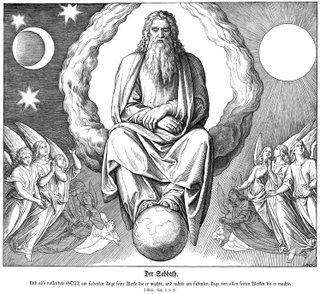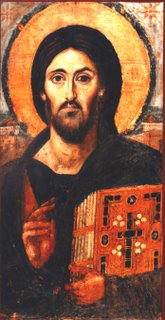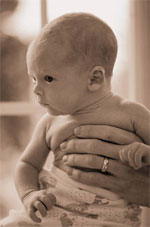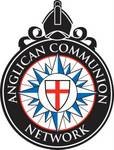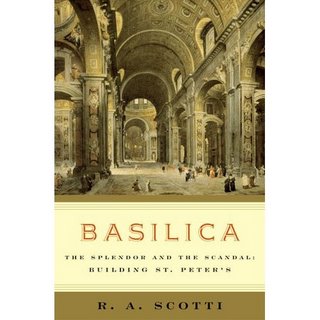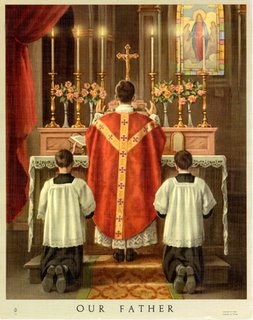
The Challenge and Hope of Being an Anglican Today: A Reflection for the Bishops, Clergy and Faithful of the Anglican Communion.
The Anglican Communion: A Church in Crisis?
What is the current tension in the Anglican Communion actually about? Plenty of people are confident that they know the answer. It’s about gay bishops, or possibly women bishops. The American Church is in favour and others are against – and the Church of England is not sure (as usual).
It’s true that the election of a practising gay person as a bishop in the US in 2003 was the trigger for much of the present conflict. It is doubtless also true that a lot of extra heat is generated in the conflict by ingrained and ignorant prejudice in some quarters; and that for many others, in and out of the Church, the issue seems to be a clear one about human rights and dignity. But the debate in the Anglican Communion is not essentially a debate about the human rights of homosexual people. It is possible – indeed, it is imperative – to give the strongest support to the defence of homosexual people against violence, bigotry and legal disadvantage, to appreciate the role played in the life of the church by people of homosexual orientation, and still to believe that this doesn’t settle the question of whether the Christian Church has the freedom, on the basis of the Bible, and its historic teachings, to bless homosexual partnerships as a clear expression of God’s will. That is disputed among Christians, and, as a bare matter of fact, only a small minority would answer yes to the question.
Unless you think that social and legal considerations should be allowed to resolve religious disputes – which is a highly risky assumption if you also believe in real freedom of opinion in a diverse society – there has to be a recognition that religious bodies have to deal with the question in their own terms. Arguments have to be drawn up on the common basis of Bible and historic teaching. And, to make clear something that can get very much obscured in the rhetoric about ‘inclusion’, this is not and should never be a question about the contribution of gay and lesbian people as such to the Church of God and its ministry, about the dignity and value of gay and lesbian people. Instead it is a question, agonisingly difficult for many, as to what kinds of behaviour a Church that seeks to be loyal to the Bible can bless, and what kinds of behaviour it must warn against – and so it is a question about how we make decisions corporately with other Christians, looking together for the mind of Christ as we share the study of the Scriptures.
Anglican Decision-Making
And this is where the real issue for Anglicans arises. How do we as Anglicans deal with this issue ‘in our own terms’? And what most Anglicans worldwide have said is that it doesn’t help to behave as if the matter had been resolved when in fact it hasn’t. It is true that, in spite of resolutions and declarations of intent, the process of ‘listening to the experience’ of homosexual people hasn’t advanced very far in most of our churches, and that discussion remains at a very basic level for many. But the decision of the Episcopal Church to elect a practising gay man as a bishop was taken without even the American church itself (which has had quite a bit of discussion of the matter) having formally decided as a local Church what it thinks about blessing same-sex partnerships.
There are other fault lines of division, of course, including the legitimacy of ordaining women as priests and bishops. But (as has often been forgotten) the Lambeth Conference did resolve that for the time being those churches that did ordain women as priests and bishops and those that did not had an equal place within the Anglican spectrum. Women bishops attended the last Lambeth Conference. There is a fairly general (though not universal) recognition that differences about this can still be understood within the spectrum of manageable diversity about what the Bible and the tradition make possible. On the issue of practising gay bishops, there has been no such agreement, and it is not unreasonable to seek for a very much wider and deeper consensus before any change is in view, let alone foreclosing the debate by ordaining someone, whatever his personal merits, who was in a practising gay partnership. The recent resolutions of the General Convention have not produced a complete response to the challenges of the Windsor Report, but on this specific question there is at the very least an acknowledgement of the gravity of the situation in the extremely hard work that went into shaping the wording of the final formula.
Very many in the Anglican Communion would want the debate on the substantive ethical question to go on as part of a general process of theological discernment; but they believe that the pre-emptive action taken in 2003 in the US has made such a debate harder not easier, that it has reinforced the lines of division and led to enormous amounts of energy going into ‘political’ struggle with and between churches in different parts of the world. However, institutionally speaking, the Communion is an association of local churches, not a single organisation with a controlling bureaucracy and a universal system of law. So everything depends on what have generally been unspoken conventions of mutual respect. Where these are felt to have been ignored, it is not surprising that deep division results, with the politicisation of a theological dispute taking the place of reasoned reflection.
Thus if other churches have said, in the wake of the events of 2003 that they cannot remain fully in communion with the American Church, this should not be automatically seen as some kind of blind bigotry against gay people. Where such bigotry does show itself it needs to be made clear that it is unacceptable; and if this is not clear, it is not at all surprising if the whole question is reduced in the eyes of many to a struggle between justice and violent prejudice. It is saying that, whatever the presenting issue, no member Church can make significant decisions unilaterally and still expect this to make no difference to how it is regarded in the fellowship; this would be uncomfortably like saying that every member could redefine the terms of belonging as and when it suited them. Some actions – and sacramental actions in particular - just do have the effect of putting a Church outside or even across the central stream of the life they have shared with other Churches. It isn’t a question of throwing people into outer darkness, but of recognising that actions have consequences – and that actions believed in good faith to be ‘prophetic’ in their radicalism are likely to have costly consequences.
Truth and Unity
It is true that witness to what is passionately believed to be the truth sometimes appears a higher value than unity, and there are moving and inspiring examples in the twentieth century. If someone genuinely thinks that a move like the ordination of a practising gay bishop is that sort of thing, it is understandable that they are prepared to risk the breakage of a unity they can only see as false or corrupt. But the risk is a real one; and it is never easy to recognise when the moment of inevitable separation has arrived - to recognise that this is the issue on which you stand or fall and that this is the great issue of faithfulness to the gospel. The nature of prophetic action is that you do not have a cast-iron guarantee that you’re right.
But let’s suppose that there isn’t that level of clarity about the significance of some divisive issue. If we do still believe that unity is generally a way of coming closer to revealed truth (‘only the whole Church knows the whole Truth’ as someone put it), we now face some choices about what kind of Church we as Anglicans are or want to be. Some speak as if it would be perfectly simple – and indeed desirable – to dissolve the international relationships, so that every local Church could do what it thought right. This may be tempting, but it ignores two things at least.
First, it fails to see that the same problems and the same principles apply within local Churches as between Churches. The divisions don’t run just between national bodies at a distance, they are at work in each locality, and pose the same question: are we prepared to work at a common life which doesn’t just reflect the interests and beliefs of one group but tries to find something that could be in everyone’s interest – recognising that this involves different sorts of costs for everyone involved? It may be tempting to say, ‘let each local church go its own way’; but once you’ve lost the idea that you need to try to remain together in order to find the fullest possible truth, what do you appeal to in the local situation when serious division threatens?
Second, it ignores the degree to which we are already bound in with each other’s life through a vast network of informal contacts and exchanges. These are not the same as the formal relations of ecclesiastical communion, but they are real and deep, and they would be a lot weaker and a lot more casual without those more formal structures. They mean that no local Church and no group within a local Church can just settle down complacently with what it or its surrounding society finds comfortable. The Church worldwide is not simply the sum total of local communities. It has a cross-cultural dimension that is vital to its health and it is naïve to think that this can survive without some structures to make it possible. An isolated local Church is less than a complete Church.
Both of these points are really grounded in the belief that our unity is something given to us prior to our choices - let alone our votes. ‘You have not chosen me but I have chosen you’, says Jesus to his disciples; and when we gather to celebrate the Eucharist, we are saying that we are all there as invited guests, not because of what we have done. The basic challenge that practically all the churches worldwide, of whatever denomination, so often have to struggle with is, ‘Are we joining together in one act of Holy Communion, one Eucharist, throughout the world, or are we just celebrating our local identities and our personal preferences?’
The Anglican Identity
The reason Anglicanism is worth bothering with is because it has tried to find a way of being a Church that is neither tightly centralised nor just a loose federation of essentially independent bodies – a Church that is seeking to be a coherent family of communities meeting to hear the Bible read, to break bread and share wine as guests of Jesus Christ, and to celebrate a unity in worldwide mission and ministry. That is what the word ‘Communion’ means for Anglicans, and it is a vision that has taken clearer shape in many of our ecumenical dialogues.
Of course it is possible to produce a self-deceiving, self-important account of our worldwide identity, to pretend that we were a completely international and universal institution like the Roman Catholic Church. We’re not. But we have tried to be a family of Churches willing to learn from each other across cultural divides, not assuming that European (or American or African) wisdom is what settles everything, opening up the lives of Christians here to the realities of Christian experience elsewhere. And we have seen these links not primarily in a bureaucratic way but in relation to the common patterns of ministry and worship – the community gathered around Scripture and sacraments; a ministry of bishops, priests and deacons, a biblically-centred form of common prayer, a focus on the Holy Communion. These are the signs that we are not just a human organisation but a community trying to respond to the action and the invitation of God that is made real for us in ministry and Bible and sacraments. We believe we have useful and necessary questions to explore with Roman Catholicism because of its centralised understanding of jurisdiction and some of its historic attitudes to the Bible. We believe we have some equally necessary questions to propose to classical European Protestantism, to fundamentalism, and to liberal Protestant pluralism. There is an identity here, however fragile and however provisional.
But what our Communion lacks is a set of adequately developed structures which is able to cope with the diversity of views that will inevitably arise in a world of rapid global communication and huge cultural variety. The tacit conventions between us need spelling out – not for the sake of some central mechanism of control but so that we have ways of being sure we’re still talking the same language, aware of belonging to the one, holy, catholic and apostolic Church of Christ. It is becoming urgent to work at what adequate structures for decision-making might look like. We need ways of translating this underlying sacramental communion into a more effective institutional reality, so that we don’t compromise or embarrass each other in ways that get in the way of our local and our universal mission, but learn how to share responsibility.
Future Directions
The idea of a ‘covenant’ between local Churches (developing alongside the existing work being done on harmonising the church law of different local Churches) is one method that has been suggested, and it seems to me the best way forward. It is necessarily an ‘opt-in’ matter. Those Churches that were prepared to take this on as an expression of their responsibility to each other would limit their local freedoms for the sake of a wider witness; and some might not be willing to do this. We could arrive at a situation where there were ‘constituent’ Churches in covenant in the Anglican Communion and other ‘churches in association’, which were still bound by historic and perhaps personal links, fed from many of the same sources, but not bound in a single and unrestricted sacramental communion, and not sharing the same constitutional structures. The relation would not be unlike that between the Church of England and the Methodist Church, for example. The ‘associated’ Churches would have no direct part in the decision making of the ‘constituent’ Churches, though they might well be observers whose views were sought or whose expertise was shared from time to time, and with whom significant areas of co-operation might be possible.
This leaves many unanswered questions, I know, given that lines of division run within local Churches as well as between them - and not only on one issue (we might note the continuing debates on the legitimacy of lay presidency at the Eucharist). It could mean the need for local Churches to work at ordered and mutually respectful separation between ‘constituent’ and ‘associated’ elements; but it could also mean a positive challenge for Churches to work out what they believed to be involved in belonging in a global sacramental fellowship, a chance to rediscover a positive common obedience to the mystery of God’s gift that was not a matter of coercion from above but of that ‘waiting for each other’ that St Paul commends to the Corinthians.
There is no way in which the Anglican Communion can remain unchanged by what is happening at the moment. Neither the liberal nor the conservative can simply appeal to a historic identity that doesn’t correspond with where we now are. We do have a distinctive historic tradition – a reformed commitment to the absolute priority of the Bible for deciding doctrine, a catholic loyalty to the sacraments and the threefold ministry of bishops, priests and deacons, and a habit of cultural sensitivity and intellectual flexibility that does not seek to close down unexpected questions too quickly. But for this to survive with all its aspects intact, we need closer and more visible formal commitments to each other. And it is not going to look exactly like anything we have known so far. Some may find this unfamiliar future conscientiously unacceptable, and that view deserves respect. But if we are to continue to be any sort of ‘Catholic’ church, if we believe that we are answerable to something more than our immediate environment and its priorities and are held in unity by something more than just the consensus of the moment, we have some very hard work to do to embody this more clearly. The next Lambeth Conference ought to address this matter directly and fully as part of its agenda.
The different components in our heritage can, up to a point, flourish in isolation from each other. But any one of them pursued on its own would lead in a direction ultimately outside historic Anglicanism The reformed concern may lead towards a looser form of ministerial order and a stronger emphasis on the sole, unmediated authority of the Bible. The catholic concern may lead to a high doctrine of visible and structural unification of the ordained ministry around a focal point. The cultural and intellectual concern may lead to a style of Christian life aimed at giving spiritual depth to the general shape of the culture around and de-emphasising revelation and history. Pursued far enough in isolation, each of these would lead to a different place – to strict evangelical Protestantism, to Roman Catholicism, to religious liberalism. To accept that each of these has a place in the church’s life and that they need each other means that the enthusiasts for each aspect have to be prepared to live with certain tensions or even sacrifices – with a tradition of being positive about a responsible critical approach to Scripture, with the anomalies of a historic ministry not universally recognised in the Catholic world, with limits on the degree of adjustment to the culture and its habits that is thought possible or acceptable.
Conclusion
The only reason for being an Anglican is that this balance seems to you to be healthy for the Church Catholic overall, and that it helps people grow in discernment and holiness. Being an Anglican in the way I have sketched involves certain concessions and unclarities but provides at least for ways of sharing responsibility and making decisions that will hold and that will be mutually intelligible. No-one can impose the canonical and structural changes that will be necessary. All that I have said above should make it clear that the idea of an Archbishop of Canterbury resolving any of this by decree is misplaced, however tempting for many. The Archbishop of Canterbury presides and convenes in the Communion, and may do what this document attempts to do, which is to outline the theological framework in which a problem should be addressed; but he must always act collegially, with the bishops of his own local Church and with the primates and the other instruments of communion.
That is why the process currently going forward of assessing our situation in the wake of the General Convention is a shared one. But it is nonetheless possible for the Churches of the Communion to decide that this is indeed the identity, the living tradition – and by God’s grace, the gift - we want to share with the rest of the Christian world in the coming generation; more importantly still, that this is a valid and vital way of presenting the Good News of Jesus Christ to the world. My hope is that the period ahead - of detailed response to the work of General Convention, exploration of new structures, and further refinement of the covenant model - will renew our positive appreciation of the possibilities of our heritage so that we can pursue our mission with deeper confidence and harmony.
